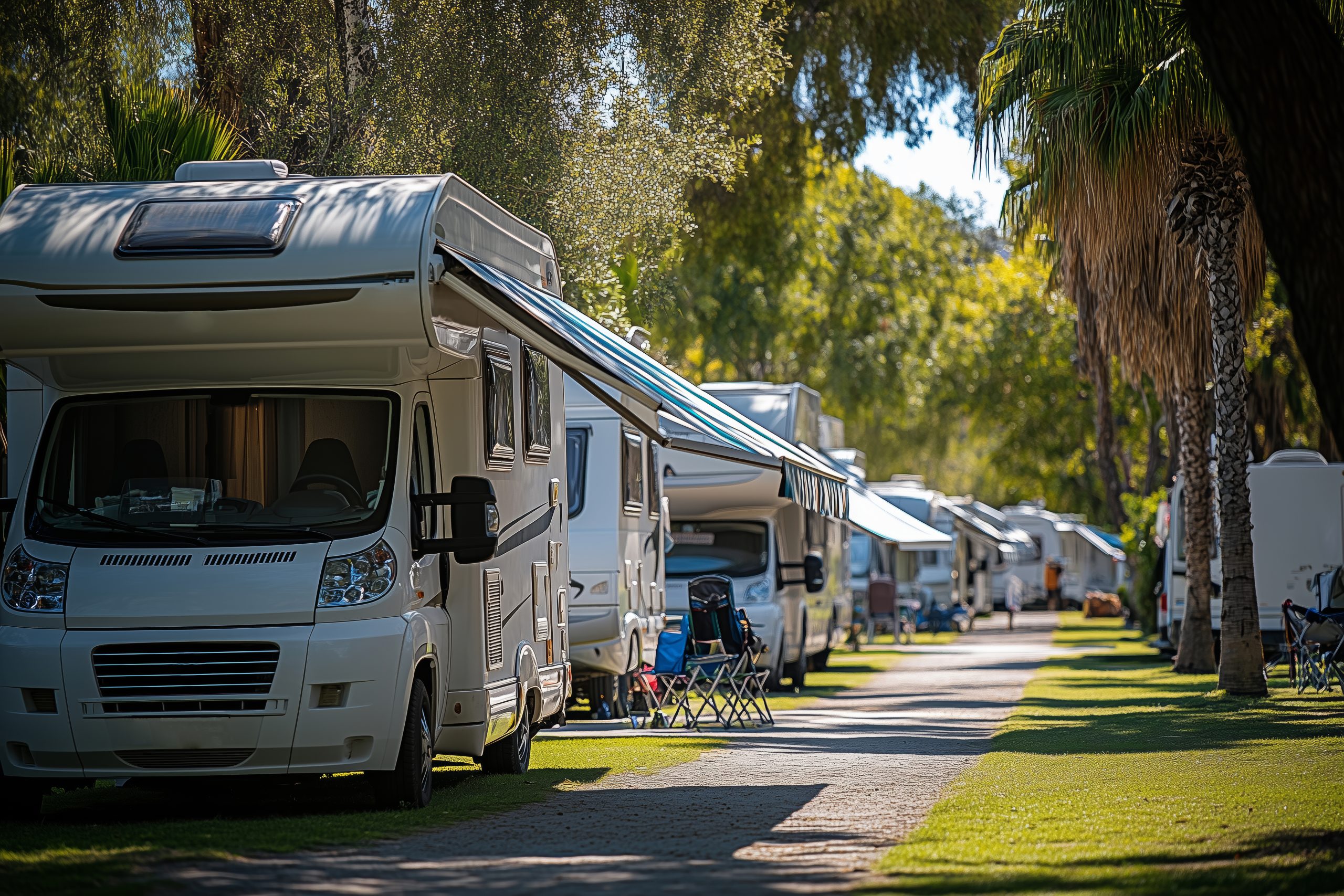When your RV is more than just a vacation vehicle—and becomes your full-time home—you need insurance that covers more than basic road risks. Standard RV insurance policies often aren’t enough for full-time travelers. Instead, a specialized RV full timers insurance policy provides the protection you truly need, wherever the road takes you.
At Happy Camper, we understand the lifestyle of full-time RVers. That’s why we’ve put together this guide on what RV full timers insurance is, when you need it, how it works—and why it’s important to structure your policies correctly to stay fully protected.
Here’s what you should know before you hit the open road full-time.
What Is RV Full Timers Insurance?
RV full timers insurance is designed for people who live in their RVs as their primary residence for six months or more out of the year. It blends elements of traditional RV insurance with protections more similar to homeowners insurance.
Typical full timers policies include:
- Personal liability coverage (similar to homeowners insurance)
- Comprehensive and collision coverage
- Medical payments coverage
- Personal property protection for belongings inside your RV
- Emergency expense coverage for temporary housing if your RV is damaged
If your RV is your home, RV full timers insurance isn’t just helpful—it’s essential.
When Do You Need Full Timers Insurance?
You should consider RV full timers insurance if:
- You live in your RV year-round or for most of the year.
- You no longer maintain a separate permanent residence.
- You spend months at a time at RV parks, campgrounds, or boondocking spots.
- Your RV is legally considered your primary residence for registration and tax purposes.
If you’re only using your RV occasionally for short trips or vacations, standard RV insurance may be enough. But if the RV is your main residence, you’ll need the extra layers of protection full timers insurance provides.
Why Standard RV Insurance Isn’t Enough
Standard RV insurance focuses mainly on road accidents, collisions, and basic liability while driving. It doesn’t typically cover things that happen while you’re parked for long periods—like theft, weather damage while stationary, or injuries to guests inside your RV.
Without RV full timers insurance, you could face major financial risks if:
- Someone gets hurt inside or near your RV.
- Severe weather damages your stationary RV.
- A fire or theft damages your belongings inside your RV.
- You need temporary housing while your RV is repaired after an accident or storm.
Full timers insurance is built to handle these more permanent living risks, keeping you better protected.
Can You Have Two Insurance Policies on Your RV?
In some cases, full-time RVers may wonder whether they need—or can have—two separate insurance policies on the same RV. Here’s the truth:
- Technically legal, but not recommended: It’s legal to purchase two separate insurance policies from different companies, but it usually leads to confusion, overlaps, and delays if a claim is filed.
- No double payouts: Even if you pay for two policies, you can’t collect two settlements for the same incident. Insurance companies share claim data, and trying to file two claims for the same damage can lead to serious legal consequences, including accusations of insurance fraud.
- Best approach: Choose one comprehensive RV full timers insurance policy that meets all your needs—rather than trying to layer coverage through two policies.
If you also own other vehicles (like a tow car or motorcycle), it’s usually better to insure those with a separate, appropriate policy—but keep your RV covered under one clear, complete full timers plan.
RV Full Timers Insurance: What to Look For
When shopping for RV full timers insurance, be sure to ask about:
- Personal Liability Limits: Make sure it matches or exceeds what you would carry for homeowners insurance.
- Comprehensive and Collision Deductibles: Balance savings with peace of mind.
- Personal Effects Coverage: Ensure adequate coverage for the value of your belongings.
- Emergency Expense Allowances: Confirm temporary living expenses are included.
- Optional Coverages: Extras like roadside assistance, tire protection, full replacement cost coverage, or pet injury coverage can be critical.
Choosing the right single policy ensures fewer headaches and faster claims when you need support most.
Tips for Full-Time RV Insurance Success
Before choosing a policy, take time to document the value of your RV and the personal belongings you’ll be traveling with. This can help ensure you purchase enough coverage and simplify any future claims. It’s also wise to review your policy annually. As your lifestyle, belongings, or travel plans change, your insurance needs may too.
And remember, protecting your RV doesn’t end with insurance. Smart maintenance habits, secure storage practices, and safe driving all add extra layers of protection to your full-time RV life.
Wrapping Up: RV Full Timer’s Insurance
Your RV isn’t just a vehicle—it’s your home, your freedom, and your way of life. Choosing the right RV full timers insurance policy is essential for protecting your investment, your belongings, and your future adventures.
At Happy Camper, we specialize in helping full-time travelers, weekend warriors, and outdoor enthusiasts safeguard what matters most. Whether you’re protecting your RV, boat, or powersport vehicle, our experienced team is ready to match you with the perfect plan.
Contact Happy Camper today to get started—and hit the road with confidence and coverage that travels with you.


